Category: Blog
Chew Before You Swallow, she said
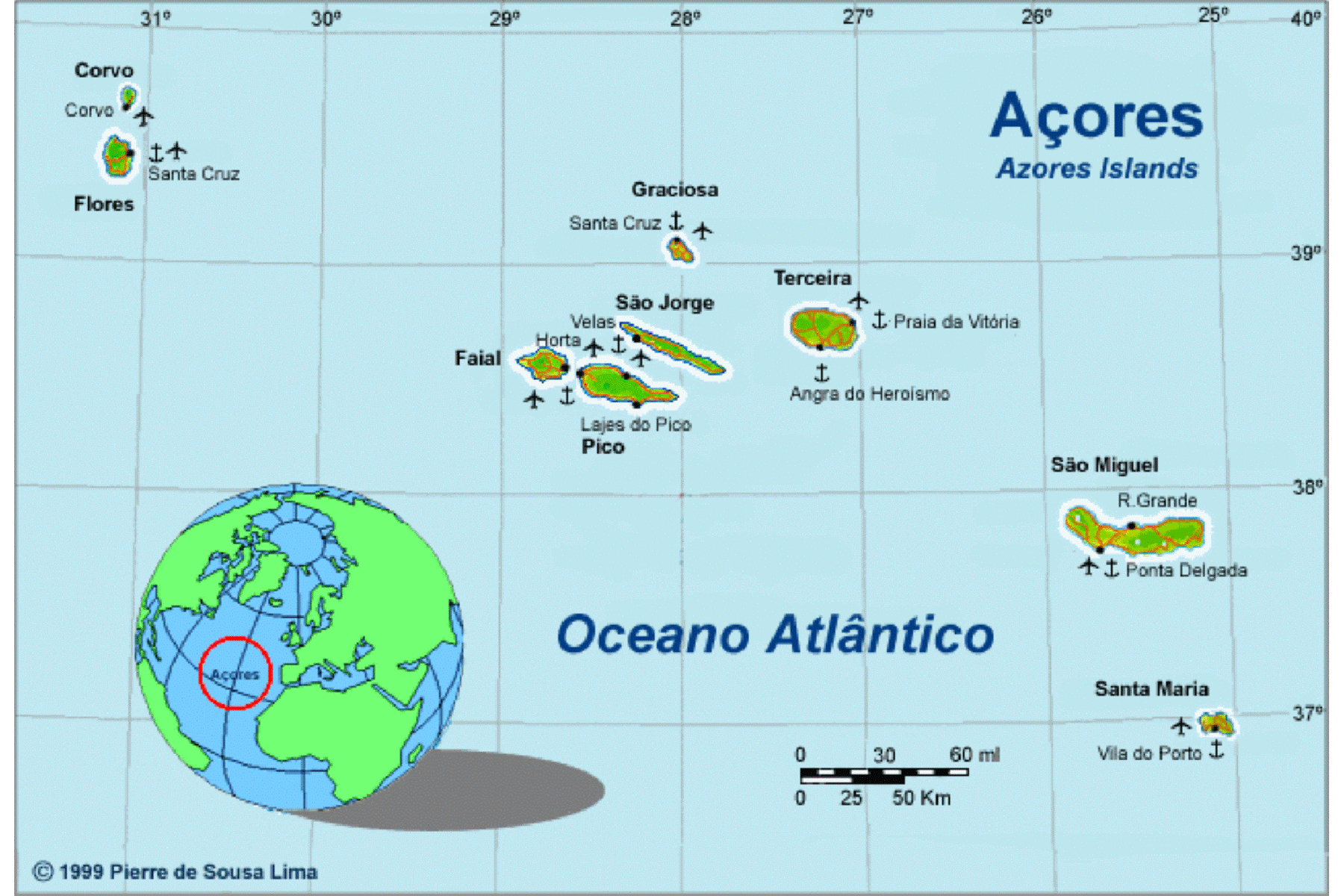
Young Artur could not have been much older than 10 when he was first sent to boarding school. This meant moving from Graciosa to Terceira, in the Azores Islands, Portugal.
Today, at almost 90, Artur or Cunha de Oliveira – he prefers his surname – is a renowned figure of the Azores. In him you’ll find demanding wisdom and generous compassion. He is a good friend and a mentor.
Standing on the pier that day before he boarded, his mother gave him a lifelong piece of advice:
“Son, remember to chew before you swallow”, she said.
“Mom, I’m not a baby. I know better than to swallow food without chewing”, he replied.
“Oh, I don’t mean the food, my dear!” And with a kiss and a smile, she bid him goodbye.
She was referring to the many things he would be taught and would learn. This principle has guided him on a journey that has been unique and fascinating (for instance, service as a Member of the European Parliament).
Sometimes, what is most evident goes shockingly unnoticed.
His mom’s advice is one of those cases – commonsense usually is. I often wonder how many things I accept to be true without pausing to ask: Is this really so?
Believing everything you think is not a freeway to freedom.
Trusting everything we are taught and told is no diploma of wisdom. Accepting things at face value proves to be a mask that conceals disillusion. Instead, to nurture the routine of pausing to test the strength of our truths is a practice of growth.
One question you might want to keep in your back pocket for unexpected situations is: “Why not?” For, now and then life might kick us in the buttocks. And with a righteous claim in our voices, we’ll jump up to object: “But why? Why me?!”
I’m quite sure there won’t be an answer. This might be life’s way of asking “Why not? Or have you swallowed something without chewing?”
Who do you know who’d enjoy Artur’s mom’s advice? Share it!
39 Days, 11 Hours And 30 Minutes Of Bandage
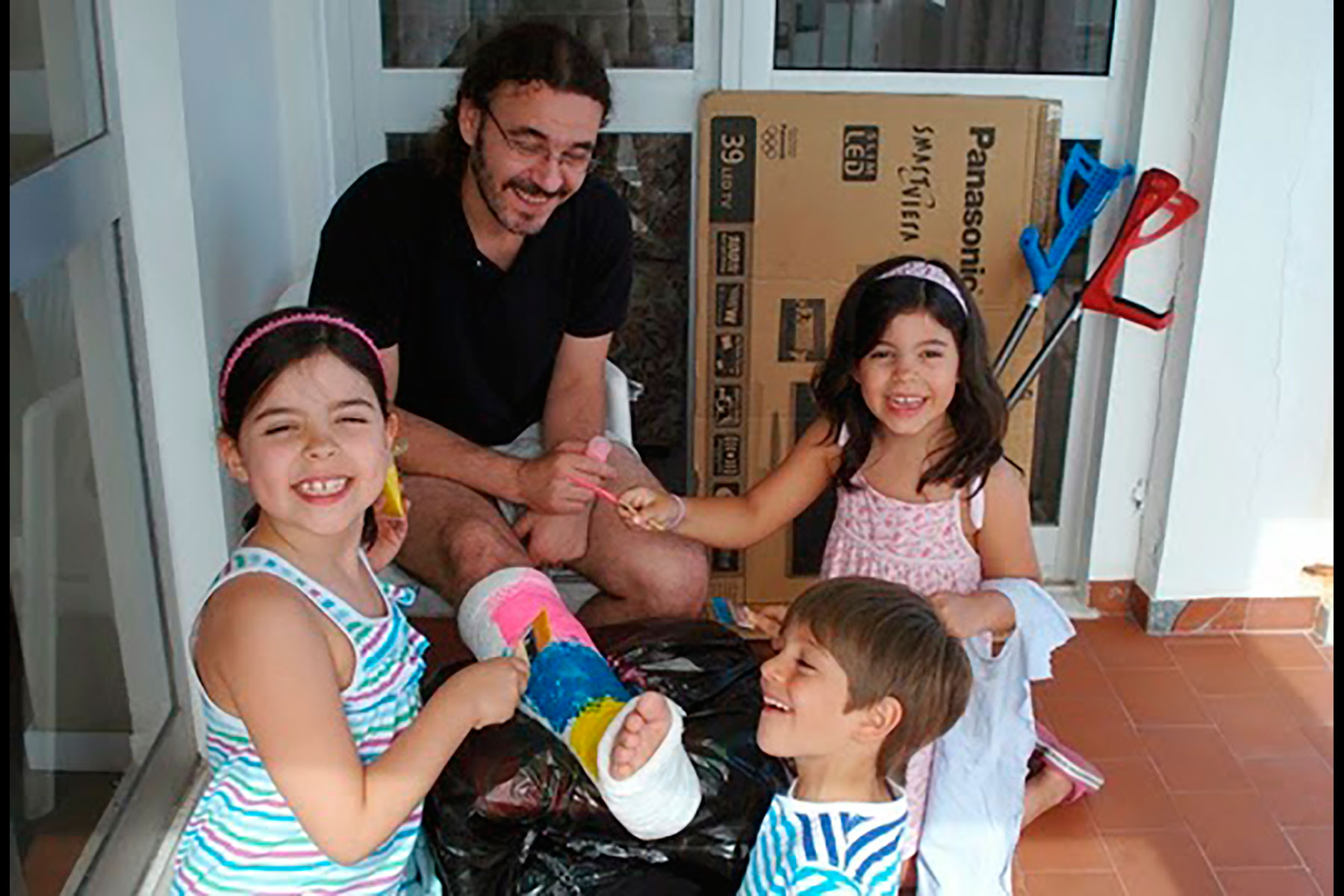
On June 29th at 10:30 pm, while I was out enjoying an evening jog, I tripped and broke the 5th metatarsus (the main bone of the pinky) of my right foot. On August 8th at 10:00 am the cast was removed.
That’s a photo of my nephews painting my cast.
The following are some of the things I learnt during those 39 days, 11 hours and 30 minutes.
1. Not getting in the way already great help
Performing everyday activities took a little longer and was a bit more complex to carry out. In practice, this often meant it was harder for those around me to go about performing their own everyday activities.
Using a cast helped me learn to consider beforehand whether I would be of greater help staying out of the way instead of getting in the middle and making things messier. Often, the best way to help was just not getting in the way.
I extend this to other areas of life. Though I may want to lend a helping hand with my advice or expertise, it is wise to first ask whether this will actually make things better. At times, staying still or silent is the best option.
2. Accepting dependence is tough
I also got used to the idea that some things I would just not be able to do on my own. For ex., I could not walk around with our daughter, Irene. For five weeks, I was a “sitting daddy” and relied on others to attend to many of Irene’s needs.
Life is a circle of interdependence: though autonomous, we rely on others and the services they provide for large amounts of our happiness.
3. Accepting restriction is also tough
Not being able to take a walk, run, swim or shower normally were tough for me. I even had dreams where I’d be walking and then noticed in shock that I still had the cast and shouldn’t be putting my foot on the ground.
One the principles we use in my conflict resolution seminars is that a conflict with no solution is a solved conflict. Accepting my limitations proved to be a challenge. Once accomplished, it’s also a blessing.
4. Non-empathetic remarks are scary
It wasn’t on purpose. In fact, they were not even aware of it. But the truth is that, in an attempt to be sympathetic, some people would tell me their own stories of broken bones. And they didn’t spare the dramatic details:
“My cousin broke his foot and had a cast for THREE months!!”, “I also broke my foot and it never really healed. It gets sore when I run and hurts on rainy days.”, “Be careful with the doc’s advice. Sometimes it makes things worse!”
My experience tells me it is not empathetic to share your ”horror” story with someone who is going through one of their own. They don’t need to hear the ups and downs of your experience. It doesn’t help cope.
5. Vulnerability introduced me to nice people
On the other hand, people were very kind. Just an example, when my wife, Claudia, Irene and I travelled on vacation, we anticipated a stressful and rough ride. Not true.
The services for passengers with mobility constraints were great. At every airport, we were assisted with great effectiveness and extreme kindness, at no extra cost. I take this opportunity to express our gratitude to all those who helped us.
A cast taught me that vulnerability can bring out the best in those around us.
6. Love makes loved ones endure
Another aspect was that my wife had extra work on her hands. As the days went by, I could see the fatigue growing, and an increasing effort was required to endure. But she endured. And then she endured some more. My love for her has grown.
I am fortunate to have seen that love fuels faith and strength in tough times.
7. Life withers and dies when trapped
Finally, the day I had the cast removed I noticed that my right leg was very thin. Even some of the hair on my leg had died (of asphyxiation?) and fallen off.
This made me think about how we, as humans, are not built to be trapped. Whether a relationship, the past, a job or even a dream, whatever imprisons us, weaken us and eventually kills the life in us.
My foot is almost fully functional and the vacation will soon be over. So expect to hear more from me from now on. 🙂
Break Free From Frustration

Life isn’t going to be perfect and there’ll always be a good reason to feel disappointed. So what do we do? We sometimes complain. Now, this may seem appropriate, but in fact it’s not. To complain leads to disaster and I’ll explain why.
Most of our complaining is senseless,
and has a disastrous effect: it fuels our frustration.
Aristotle said that “Anyone can become angry – that is easy. But to be angry with the right person at the right time, and for the right purpose and in the right way – that is not within everyone’s power and that is not easy.” The same goes for complaining:
To complain to the right person at the right time for the right purpose in the right way is not easy! The opposite is easy: to my friends I’ll complain about my partner, to my partner about my boss, to my boss about my colleagues, to my colleagues about the government and the weather…
Every time we express our discontent – including when we silently complain to ourselves – we’re telling the mind that something is wrong. This feeds our frustration. Then, there’s really not much we can do to stop the Hulk in us from coming out.
In other words, complaining leads to frustration, and frustration to anger and grumpiness – a recipe for disaster. To avoid complaining, even to myself, I follow two guidelines in both my personal and professional life:
1) Do not allow yourself to complain about things you cannot or are unwilling to change – it’s a waste of time. Change the subject.
2) Do not allow yourself to complain without suggesting a better realistic alternative. Until you think of something better, keep quiet.
By breaking free from the habit of complaining, we increase our tolerance to frustration. I’m not going to begin to tell you how rewarding and refreshing that is. Instead, I’ll challenge you to try it for just one week. Then, please tell me how you feel!
Remember: There’s always going to be a good reason to complain. Be nice, and let someone else use it. 🙂
The Pyramid Of Fulfillment
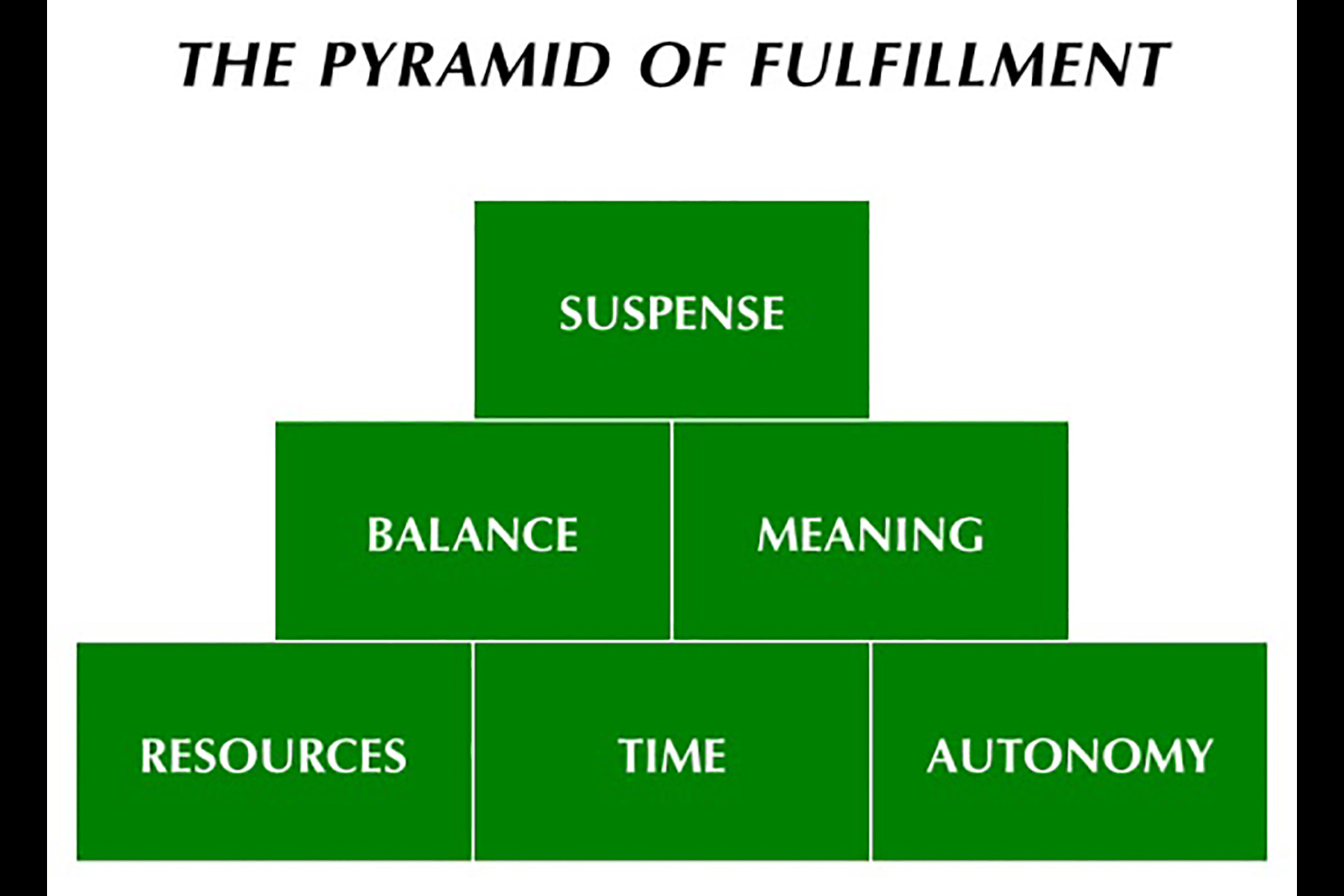
What are the first six words that pop into to your head when you hear the words fulfillment, success or happiness? Before I tell you why, please write them down.
The other day, my friend and fellow coach at IESE Business School, Tony Anagor — Cofounder of LifestyleDMC and Lifestyle Barcelona, companies that specialize in organizing unique events and experiences — was invited to give a talk to MBA students from around the world who were in Barcelona as a part of the University of Manchester’s European Summer Study Programme.
When Tony asked me if I’d like to share the stage with him, I immediately jumped on board: for me students mean the future, and I like being in touch with the future.
During my presentation, I asked the students this same question and shared with them my six words. They describe the decisive pieces to living a fulfilling life. I call it “The Pyramid Of Fulfillment”. Let’s have a look:
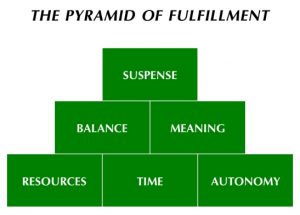
Resources: This includes money, but not predominantly. Seth Godin gets it well in a blogpost:
“Don’t get caught confusing money with security. There are lots of ways to build a life that’s more secure, starting with the stories you tell yourself, the people you surround yourself with and the cost of living you embrace.”
Time: Plenty of resources and no time to use them is not worth much. So, how much time do you have for you? Not for personal obligations apart from work, but time for your thing? I find that sometimes even my free time is booked.
Autonomy: Resources and time are useless if you’re not free to do with them what you desire. In the end, the goal is to live and work like you’re your own boss. Self-determination is a key factor for lasting motivation.
Balance: Juggling the different areas of your life is an art. It can also be your dismay. A fulfilling life is like an orchestra. It’s not enough to play one instrument well. You want all of them to do well and to do it together.
Meaning: With the resources, time and opportunity to live life on your terms and balance in doing so, you’re also going to need meaning. Life needs to make sense. What good is a wonderful orchestra isolated in a soundproof room where no one can hear it?
A life that does not contribute
to something bigger than itself lacks purpose.
Suspense: This is one of my favorites. I wrote about it in a previous post. Fulfillment is not about reaching the finish line. It’s about learning the game, keeping it going and ultimately becoming a game changer! This ongoing process requires excitement and energy. And without suspense, that’s really not possible.
What does your pyramid look like? I’m sure there are other significant pieces we could add. Love to hear about it.
Never Relinquish Your Power
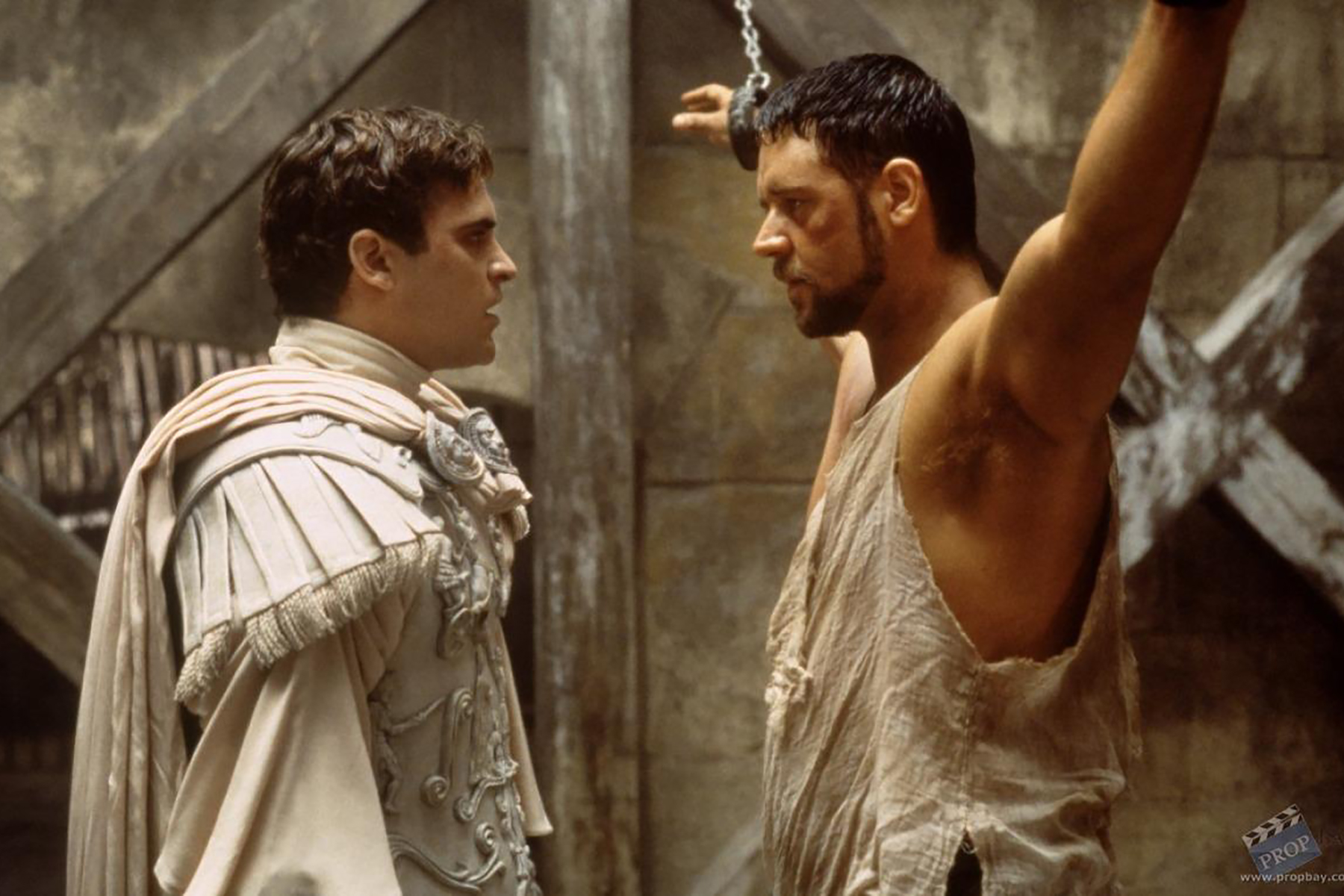
It’s easy to be cool when things are cool. It’s easy feel down when things aren’t going well. What is hard is to bounce back when things just plainly SUCK!
Let me put you into context: So someone stole my briefcase — yep, the computer, the wallet, the whole shebang… Sweet irony: I had just finished giving a workshop on conflict management. How about that for “practice what you preach”?
A distinction: You don’t control a reaction.
But your response, that’s entirely up to you.
How did it happen? That’s not important. Just skill and opportunity (more skill than opportunity I must say).
How did I react? Not important either (though I must say I didn’t lash out in accusations. No, I just said: “F***! Someone stole my briefcase!” And then followed standard procedure: notify security, leave name and number, report the theft… Boring!).
What is important, though, is the aftermath, the response that comes after the reaction in the following hours and days.
Another distinction: You don’t control
someone’s action. But you can minimize its impact.
So how do you tailor your response so as to minimize the impact of an action? Let me tell you what I did:
– First, I sheltered myself: Family. Friends. That’s what they are for. I sought them out and told my story. I got the support I needed and even a computer to use! Then I thought: “If I’d lost one of them, I’d really be in trouble.” I felt a bit better because I didn’t feel alone.
– Second, I pampered myself. Yep. Like mom and dad did when I was little and tripped and fell down. I indulged myself in something I enjoy. In this case, it was a nice (strong) glass of wine (maybe two). Now, that started to feel better.
– Third, I reassured myself. I avoided feeling worse than I already did. When your stuff is stolen, you feel vulnerable, insecure. And that on its own is more than enough.
You don’t need to tell yourself: “Who the hell leaves a briefcase unattended in a big restaurant?! What an idiot!” I replaced that kind of talk with: “I’m the same guy I was yesterday. The same pretty self-confident positive guy. Let’s keep it that way.”
This doesn’t make me a hero.
But it let’s me know I don’t accept going down as a loser.
In other words: If you don’t stop to decide what your response will be, you give away any power you have to minimize the impact that other people’s actions have on you. That means they’re in control, not you. And that — I assure you — REALLY sucks!
By the way, today a fellow human and fine citizen named Sergio called saying he had found a wallet with my ID in a trash bin. Thank you new friend!
[Sergio Estevez specializes in wine and premium liquor tasting events in Barcelona. Follow him @LoCatamos]
The Sound Of Suspence
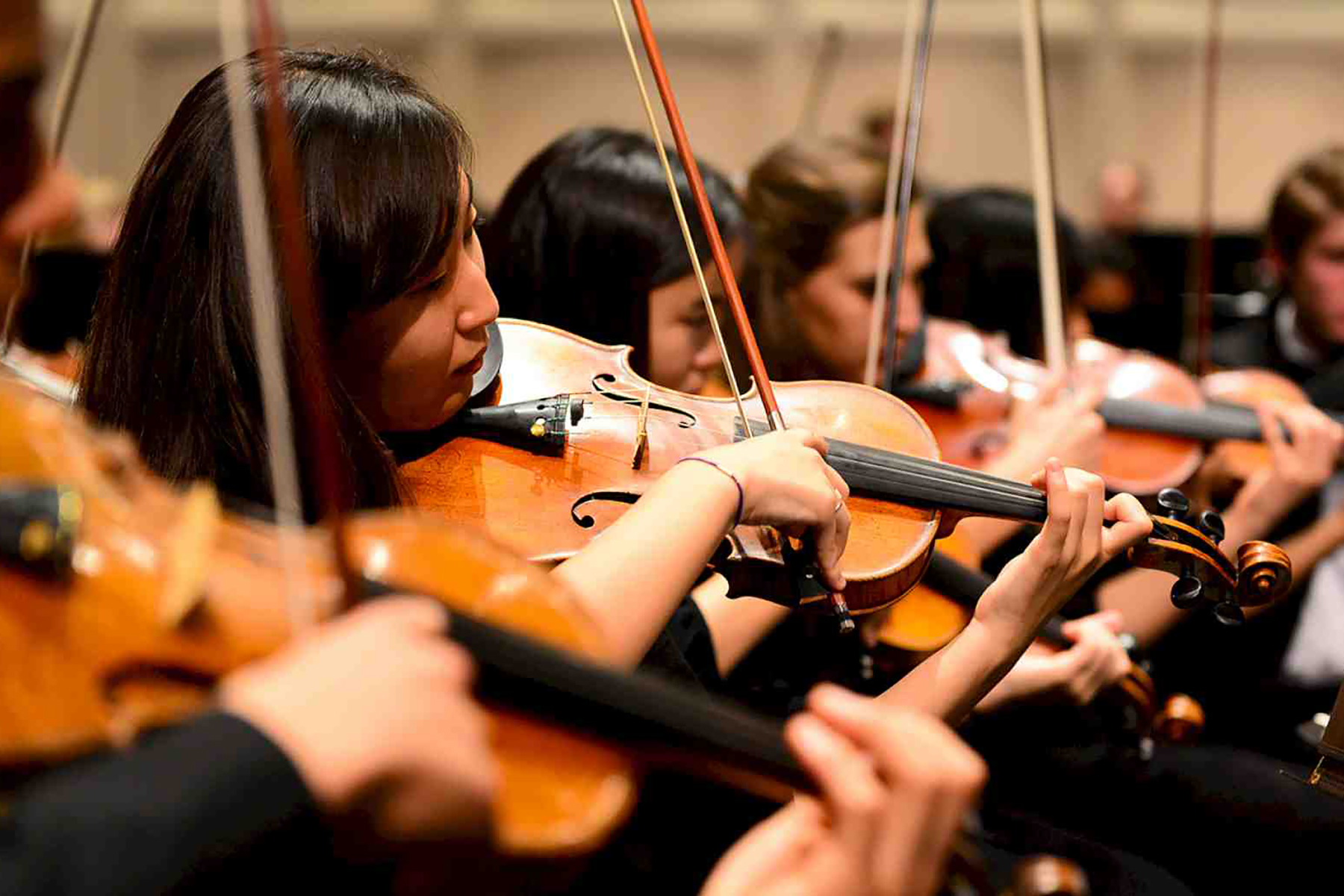
Do you like to meet interesting people? I love it. And it always surprises me when I notice this:
– excitement and energy in the lives of people that struggle;
– and dullness and demotivation in the lives of people who prosper.
Why is this? Wouldn’t you expect the opposite? It seems there’s more to self-fulfillment than “making it”.
Self-fulfillment is when you feel proud
to truthfully share any aspect of your life.
Imagine life is an orchestra. Self-fulfillment is when each part of our life creates sounds that all together result in something nice. It’s not enough to play one instrument well. We want all of them to do well and to do it together.
This means self-fulfillment is a state of combined harmony of the different areas of our life. And we can’t achieve this on our own because our lives involve other people and their self-fulfillment.
Self-fulfillment depends on the amount of suspense
you’re willing to allow into your life.
What makes a good story? Suspense resolved. No suspense, no story. Too much, and we might asphyxiate. Not enough, and it’s boring. From time to time, we’ll want to stir things up in life to make sure the story continues to be interesting.
So, self-fulfillment will be that ongoing fluctuating process in your life where you deal with some areas first, while others wait unattended. And that’s okay.
What is not okay is if the process comes to a halt, because stagnant streams stink. This is why just “having it all” isn’t enough.
In the end, the question that matters is: What suspense am I resolving and who is part of it? So, the next time you meet new people, be sure to feel proud and share the sounds of your suspense!
Let’em Rock The House

The room is packed — over four hundred hungry hearts. The excitement has visibly surfaced on the expectant faces of untamed smiles and craving eyes. Silence… Silence… Then a loud, proud and potent “HELLOOOO…” and the crowd bursts into an eruption of euphoria.
It was the official opening of the Toastmasters District 59 Spring Conference. Three intense days of speaking, of connecting, of sharing. And it was A BLAST. Believe me… I was there.
Many elements contributed to the huge success of the event. I’ll mention just one: the secret to organizing and moderating events like these.
How can we tell apart good event organizers and moderators
from the truly great ones?
Great event organizers and moderators are like light. The purpose of light is not to be looked at, but to make the surroundings shine.
No one stares into the light. And if someone shoves an intense beam of light straight into your eyes, what would you do? Exactly. Like light, the purpose of great organizers and moderators is to work so that others may shine: the participants, the speakers, the guests.
I gave a workshop at the event and can testify first hand that that is how the team and moderators worked throughout the entire conference.
Their aim was not to shine under the spotlight. Nop. Their attitude was to be the spotlight and give it all, which included a persevering sincere smile of availability.
And all that so that when the time came for us to burst onto the stage, we could rock the house. And so we did. That wouldn’t have been possible without the sensitive team light of organizers and moderators. Thank you! Chapeau!!
If Ever There’s A Purpose

Who am I? And why am I here? These are questions, specialists say, that assist us in the process of creating our identities. These questions have entertained a great part of my youth and adult life.
My quest to answer them, which somehow always seems to have a sequel, has been intense, exciting and at times unpredicted. Funny enough, meaningful results have come not by way of books or theories, rather by way of experiences and people.
The stories and relationships of life have helped me understand that:
For what matters, we get to choose who we want to be.
And a universal purpose, if there is one, might just be to be together.
If you live in those parts of the planet where August means vacation, you might be enjoying a few days of rest. Out here in sunny southern Spain, my wife and I enjoy the company of unique friends who dedicate themselves to a “universal” purpose.
For them, home is a distinct place called Murtra Galilea, a resort like compound for retreat and tranquility. The purpose you breathe here is rather palpable: kindness.
Here, it quickly becomes obvious that people were made to be kind, to extend warmth, to intensely enjoy the experience of being nice. It’s a wonderful feeling and I wanted to share it.
Kindness, if ever there’s a universal purpose!
Your Body Spoke

Last week I had the pleasure of listening to a great speech entitled “Your Body Speaks” given by my good friend Evgueni Talal at our Prestigious Speakers Toastmasters club meeting.
I normally thought of body language as that part of communication that our bodies convey to others and that other people’s bodies convey to me. But that evening Evgueni gave it a twist and got us thinking in a different way: Your body speaks to you. Are you listening?
I will usually listen to what other people’s bodies are saying. And I make an effort of being aware of what my body is telling them. But I really hadn’t given much thought to the idea that my body is also talking to me, that I can listen to it.
Don’t get me wrong, I do pay attention to my body: when hungry, I eat; when tired, I rest; when restless, I exercise… But I hadn’t thought about this relation as a conversation.
Have you spoken to your body?
What is it saying?
Conversations (real ones at least) involve memory, interaction (action + reaction + action + …), openness, reflection and unpredictability. Conversations allow for disagreement and conflicting views, and thus for persuasion, compromise and collaboration.
Wow! I hadn’t realized I could do all that with my body! Have you ever pictured your relationship with your body in these terms?
Social psychologist Amy Cuddy gave a fantastic talk on TED TALKS (click to watch). She postulates and proves that our bodies work for us. Our body postures change our brain chemistry as well as the way others perceive us.
Our bodies boost our self-confidence. They are powerful allies and agents of our happiness. It goes beyond food and exercise – It’s a creative conversation!
Shadows of Creativity
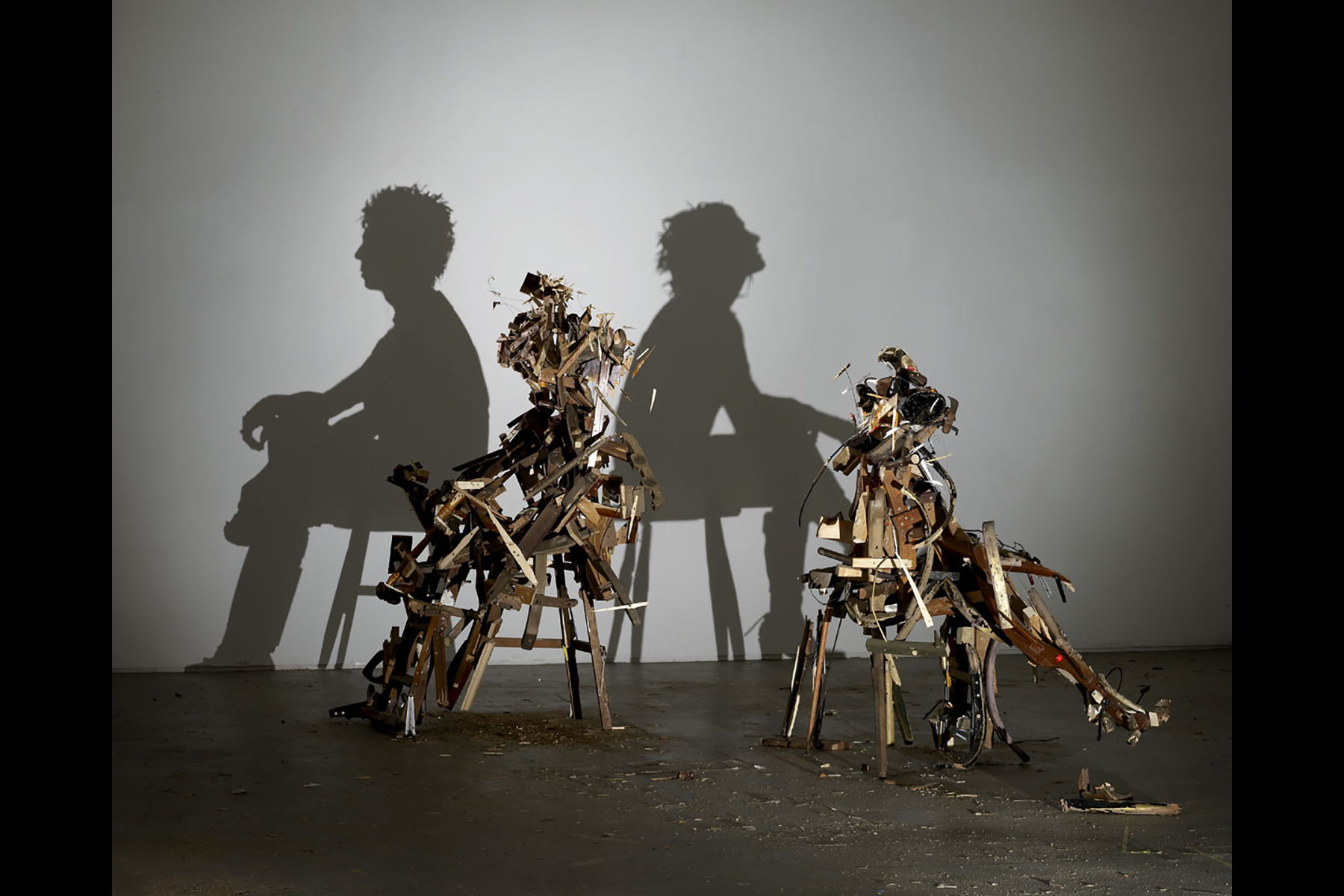
We tend to feel low when shadows get in the way of the path we believe leads to happiness. We want the sunshine, not the cloudy skies. And that’s all right.
Nonetheless, shadows sometimes get in the way of our projects, expectations and dreams. Therefore, it does us good to remember that if there are shadows it is because there is light. This means that the shadows in our life ARE light, just not where we expect it to be.
This is where our creativity can kick in. We might want to actively wait for the shadows to pass; we might want to step around the shadows and into the light somewhere new; we might consider the idea of appreciating the dark features of the shadows in order to boost our contentment of the light; we might seek new, inner light — it’s up to you!
Because shadows are the tangible evidence of light somewhere, they’re a fantastic incentive for a creative use of our potential everywhere.

